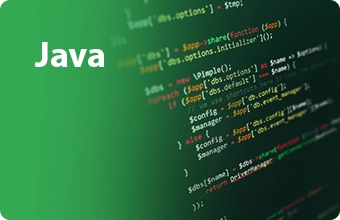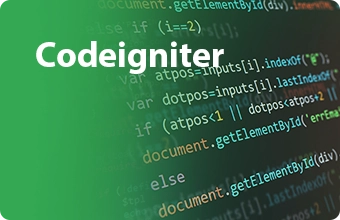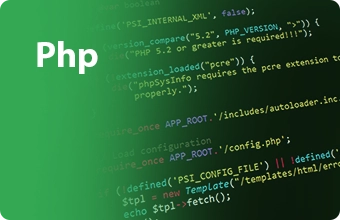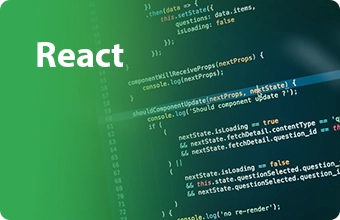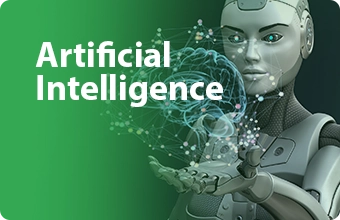Machine Learning
Machine learning is a subfield of artificial intelligence (AI) that focuses on the development of algorithms and statistical models that enable computers to perform tasks without being explicitly programmed. The primary goal of machine learning is to allow computers to learn from data and improve their performance over time.

Machine learning is a subfield of artificial intelligence that focuses on developing algorithms and models capable of learning from data rather than being explicitly programmed. It enables computers to improve their performance on tasks through experience. The key characteristics of machine learning include:
- Learning from Data:
- Machine learning systems learn from data patterns and examples rather than relying on explicit programming.
- Adaptability:
- Machine learning models can adapt and improve their performance over time as they are exposed to more data.
- Automation:
- Once trained, machine learning models can automate decision-making and predictions without human intervention.
- Generalization:
- ML models aim to generalize from the training data to make accurate predictions on new, unseen data.
- Pattern Recognition:
- ML algorithms excel at identifying and learning patterns within data, allowing them to make predictions or decisions based on those patterns.
- Prediction and Classification:
- ML models are often used for predicting future outcomes or classifying input data into predefined categories.
- Scalability:
- Machine learning techniques can scale to handle large and complex datasets and can be applied to various domains.
- Feedback Loop:
- Reinforcement learning involves a feedback loop where the model learns from its actions in an environment and receives feedback in the form of rewards or penalties.
- Iterative Improvement:
- Machine learning models can be iteratively improved by refining algorithms, adjusting parameters, or incorporating new data.
- Complexity Handling:
- ML models can handle complex problems and large amounts of data, making them suitable for tasks that might be challenging for traditional rule-based systems.
- Feature Extraction:
- ML algorithms can automatically identify relevant features or attributes from raw data.
- Non-Linearity:
- ML models can capture non-linear relationships between input features and output, allowing them to represent complex functions.
- Probabilistic Output:
- Many machine learning models provide probabilistic outputs, indicating the likelihood of a particular outcome.
- Interpretability:
- Depending on the algorithm, ML models may offer varying levels of interpretability, allowing users to understand the reasoning behind predictions.
- Application Diversity:
- Machine learning is applicable in a wide range of fields, including image and speech recognition, natural language processing, healthcare, finance, and more.
- Introduction to Machine Learning – 6 hours
- Basic Concepts in Statistics and Probability – 12 hours
- Introduction to Python for Machine Learning – 8 hours
- Data Collection and Cleaning – 10 hours
- Exploratory Data Analysis (EDA) – 12 hours
- Feature Engineering – 8 hours
- Linear Regression – 14 hours
- Polynomial Regression – 8 hours
- Evaluation Metrics for Regression – 10 hours
- Logistic Regression – 10 hours
- Decision Trees and Random Forests – 16 hours
- Support Vector Machines (SVM) – 10 hours
- Evaluation Metrics for Classification – 10 hours
- Unsupervised Learning – Clustering – 10 hours
- Dimensionality Reduction (PCA) – 10 hours
- Association Rule Learning – 8 hours
- Cross-Validation – 10 hours
- Grid Search and Random Search – 8 hours
- Model Selection and Evaluation – 10 hours
- Introduction to Neural Networks – 10 hours
- Multilayer Perceptrons (MLP) – 10 hours
- Convolutional Neural Networks (CNN) – 20 hours
- Recurrent Neural Networks (RNN) – 14 hours
- Introduction to Natural Language Processing (NLP) – 10 hours
- Text Preprocessing – 10 hours
- Word Embeddings – 10 hours
- Text Classification with RNNs and LSTMs – 10 hours
- Introduction to Reinforcement Learning – 10 hours
- Q-Learning and Deep Q Networks (DQN) – 10 hours
- Advanced Topics and Emerging Trends – 14 hours
- Course Recap and Final Project – 68 hours
You May Like
Our thoughtfully designed internship programs provide a tailored and enriching experience for aspiring professionals.


